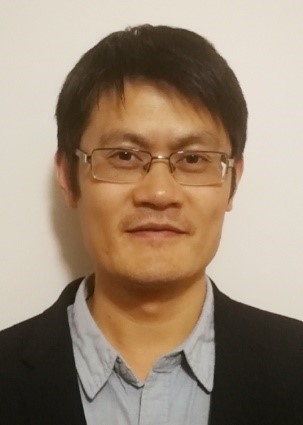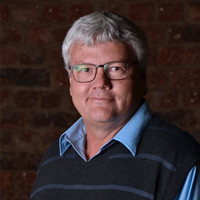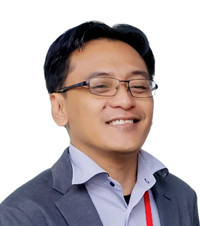
Prof. Takashige Omatsu, Chiba University, Japan
Fellow of JSAP, OSA, SPIE
Bio: Takashige Omatsu (B.S. (1983), Ph.D. (1992) from the University of Tokyo) is a professor of nano-science division of a faculty of engineering in Chiba University.His research intersts cover a variety of areas, such as nonlinear optics, solid-state and fiber lasers, singular optics, and super-resolution spectroscopy. Recent work has focused on chiral control of nano-structures by angular momentum of light. Such chiral nano-structures will potentially provide a new scientific aspect to metamaterials, plasmonics, and silicon photonics, and they might also enable us to develop nanoscale imaging systems with chiral selectivity. He has already published >100 refereed journal articles, and he has performed >20 invited presentations of major international conferences, including CLEO, CLEO Pacific-Rim, CLEO Europe, LEOS, and ICALEO meetings. He has been appointed as an Associate Editor of Optics Express during 2006-2012. He is also on the editorial board of Applied Physics Express. He is currently working as a steering committee member of the conference on the laser and optoelectronics pacific-rim (CLEO Pacific-rim). Professor Omatsu is a Fellow of the Japan Society of Applied Physics, and a Senior Member of the Optical Society of America. He is also Visiting Professor, Xinjiang Normal University, China.

Prof. Chuang Feng, Nanjing Tech University,
China
Bio: Professor Chuang Feng obtained his PhD from the University of Western Ontario, Canada. Now he is a professor and the director of the Intelligent Civil Engineering Materials and Structures Lab at College of Civil Engineering in Nanjing Tech University, China. Professor Feng is the recipient of a number of renowned scholarships and fellowships, including Endeavor Research Fellowship from the Department of Education and Education of Australia, DECRA from Australian Research Council, JSPS Fellowship from Japan, etc. Since 2019, Professor Feng was among the World’s Top 2% Scientists in the field of Civil Engineering in the list compiled by Stanford University for 5 consecutive years since 2019. He has published more than 90 papers in prestigious journals (i.e., Cement and Concrete Composites, Composites Part A, Composites Part B, Computer Methods in Applied Mechanics and Engineering, etc.), which attract nearly 3500 google citations with h-index being 29. Particularly, one paper is selected as the Front Cover image by Polymer composites and three are ESI highly cited. By now, Professor Feng have supervised 4 PhDs and more 27 research-based Masters in Australia and China. Professor Feng has been invited to give plenary/keynote presentations and serve as session chair by a number of international conferences, including the ones organized by Engineering Structures journal. He is now the board member of several journals, including Nano Materials Science, Engineering Research Express, Buildings, Discovery Cement and Concrete and the long-term reviewer for more than 60 international journals.

Prof. Hendrik C Swart, University of the Free State, Republic of South Africa
Bio: Hendrik C Swart is an Internationally acclaimed researcher and a senior professor in the Department of Physics at the University of the Free State. He has been key in developing processes to synthesize and deposit thin films of various luminescent semiconductor nano-particles, enhancing the color, luminescent intensity, and lifetime, thereof. His research led to the establishment of a strong group working on luminescent materials. He has more than 930 publications in international peer-reviewed journals, 120 peer-reviewed conference proceedings, and is editor/author or co-editor/author of 100 book chapters and or books with more than 27870 cited author references, H-index of 74, i10 index of 641 on google scholar. Prof Swart received Highly Ranked Scholar status (Lifetime) for ranking 16th in the discipline of Phosphors. Highly Ranked Scholars – Lifetime refers to distinguished authors, including those who are currently active, retired, or deceased. These scholars are recognized for their exceptional lifetime scholarly contributions, placing them in the top 0,05% of all scholars. Their achievements are evaluated across four categories: overall (across all fields), within their specific field of study, within their discipline, and across all specialties they are associated with. Additionally, Prof Swart received Highly Ranked Scholar status (prior five years) for ranking first in Condensed Matter Physics, 42nd in Physics, 155th in Sensors, 207th in Physical Science and Mathematics, and 969th in all fields.

Prof. Rinlee Butch Cervera, University of the Philippines Diliman, Philippines
Bio: Dr. Rinlee Butch Cervera is a Full Professor and Head of the Energy Storage & Conversion Materials Re-search Laboratory at the Department of Mining, Metallurgical, and Materials Engineering, and currently serves as Program Coordinator of the Energy Engineering Graduate Program at the University of the Philip-pines Diliman. A distinguished researcher and innovator in materials and energy engineering, Dr. Cervera has led numerous research and development initiatives in renewable and alternative clean energy. His work focuses on energy storage systems, including fuel cells, hydrogen energy, lithium-based batteries, battery recycling and mining, valuable metals recovery, and waste-to-energy conversion. He is also actively engaged in techno-economic feasibility studies, multi-criteria decision analysis, and technology assessment on energy-related topics. Dr. Cervera holds a BS in Materials Engineering from UP Diliman, an MS from Universiti Sains Malaysia, and a PhD from the University of Tokyo. He completed postdoctoral fellowships at the University of Tokyo and the National Institute for Materials Science (NIMS) in Japan. Renowned for his technical expertise and scientific leadership, Dr. Cervera has received numerous prestigious awards, including the DOST Balik Scientist Award, the Outstanding Young Scientist Award from the National Acad-emy of Science and Technology (NAST), The World Academy of Sciences (TWAS) Young Affiliate Award, the David M. Consunji Award for Engineering Research, and recognition as one of the Top 100 Asian Scientists in 2023. He actively serves on the technical committees of various international and national conferences and workshops and is a member of several technical working groups involved in shaping research agendas, policy recommendations, and standards in the fields of energy, materials, and sustainability. Dr. Cervera is also a member of several leading professional organizations, including the Philippine-American Academy of Science and Engineering (PAASE), the Philippine Association for the Advancement of Science and Tech-nology (PhilAAST), the Solid State Ionics Society, The Electrochemical Society (ECS), and the Energy Re-search Institutes Network (ERIN). He is the founding president of the Institute of Materials Engineers of the Philippines (IMEP) and currently serves as Editor-in-Chief of the Philippine Engineering Journal (PEJ).
